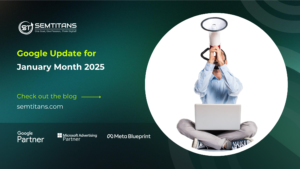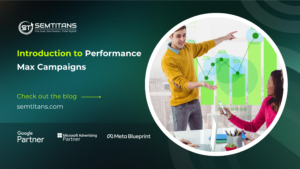
WordPress is a popular free and open-source content management system (CMS) worldwide, and you can use it to build any website. With millions of users, tons of themes, and easy integration with many popular plugins and extensions, WordPress makes it possible to create a fully-customizable website in just minutes. It is easy to learn, fun to use, and easy to have an online presence. But as good as it still requires a little work to become a powerful Search Engine Optimization (SEO) tool.
As per a custom web design company, the business must ensure its site is optimized for Google to get traffic. SEO is an important aspect of your website’s design and development. SEO is a powerful way to optimize your website for search engines such as Google, Yahoo and Bing. There are many options for WordPress templates, but only some of them are SEO-ready. WordPress can be easily configured to help you attract and convert more visitors, in turn providing a significant increase in leads and sales.
SEO is a complicated process when creating content or updating your website. You also need to understand what can affect your website’s ranking and how to avoid them. This article will cover some pointers to keep in mind that will ensure your WordPress website is optimized for search engines.
When designing a website, there are several factors to keep in mind, such as keeping the website’s overall design clean and neat. But technical details also play an essential role in how Google evaluates your site and determines its ranking.
Table of Contents
Toggle1. Create a website and blog page
The homepage is the first thing users see when they visit your website. Your website homepage is your first impression, and you only get one chance to make a good one. Before you build your website, creating a few key pages and posts is essential. You should also have a blog page set up so that you can start adding content right away.
Blog posts are an integral part of any website as it helps in connecting with your audience, but they also help inform people about your business and who you are.
2. Permalinks Optimization
Permalink Structure is a significant factor for your blog’s SEO. It helps search engines to understand the content and its uniqueness, make SEO-friendly URLs which provide easy navigation for readers and help them to focus on the topic you want to deliver. URLs are meaningful because they tell people where they will end up when they click a link. If you make your URLs clear, then it will be easier for visitors to find what they’re looking.
Permalinks are the permanent URLs that point users to the specific post or page on your WordPress site. They are helpful because they make it easier for people to share more meaningful links. Optimizing your permalink structure for SEO can be a constructive way to improve your blog. A scalable URL taxonomy can make it much easier for search engines to crawl and index and be more user-friendly. Take the time to choose a permalink structure that will work well for your blog in the long run.
Your permalink structure organizes your content and displays the number of posts in archives and trackback links. A permalink structure with month, day, and name can create an intricate site architecture. Using a custom structure and avoiding a date-based permalink helps simplify your blog’s URL structure. Your site’s permalink structure can significantly impact how users experience your site. If you choose a custom structure, be sure it is organized and logical.
3. Dynamic sitemap
A dynamic sitemap is a relevant tool for any website. The dynamic sitemap provides complete and accurate website information to the search engines, which Google automatically generates. It helps search engines index your site and makes it easier for users to find the information they want. A website that users can easily navigate is key to creating a positive user experience.
4. Automated image optimizer
Image optimization improves an image’s or picture’s visual quality by compressing and resizing images. Optimizing the images used on your website is important to keep your WordPress site running smoothly. Large-size files can cause your server to work harder and slower, affecting the user experience. Various plugins make it easier to resize and compress images, so take a minute to do it.
5. Title and meta descriptions
SEO can be challenging to manage for more significant sites with a lot of content. SEO plugins often offer default settings for titles and meta descriptions, making it possible for you to automatically optimize all new pages on your website. Using these tools, you can help ensure that you are visible and easily found by potential visitors. Plugins like Yoast SEO help automate the process and provide some safeguards so that you won’t miss out on essential optimization tips that could make a big difference in search rankings.
6. Deactivate comments
Comment sections can be a security risk for your website. Spammers and hackers can use them to add links to their websites, which can contain malicious code. It’s best to deactivate comments on your site, especially if they are not helpful or relevant to your audience.
You can disable comments on a post by entering the content area, clicking the comments tab and then selecting comment settings. Once you choose this option, you will see a drop-down menu with several options. The first option is to leave the comment section open. However, it would help if you considered disabling it due to security concerns when not using proper sanitation software.
7. Deactivate and remove XML-RPC (Remote Procedure Call)
The XML-RPC functionality provided by WordPress can be exploited by hackers if not properly secured. Deactivate and remove XML-RPC services from your WordPress site to prevent public access to your system. This plugin eliminates all service traces, including code, functions and privileges.
The XML-RPC file is one of WordPress’s most vulnerable security holes. The XML-RPC file is a common target for hackers, who use automated tools to guess the username and password. If they are successful, they can create the problem by deleting files and installing malware on your site. To secure your blog, you should deactivate and remove the XML-RPC file.
A brute force attack works because someone will try to log into your site multiple times with different usernames, passwords, or combinations of the two until they get in. If your WordPress site is getting hit by brute force attacks, you should consider disabling XML-RPC. By deactivating this file, you’ll prevent access using XML and protect yourself against brute-force attacks.
8. Set user permissions
Setting user permissions is an integral part of managing a WordPress site. You have complete control over your users’ permissions as a WordPress site manager. It ensures that everyone can access only the needed sections – keeping your site organized and preventing unauthorized changes. As a site manager, you are responsible for providing all stakeholders with the necessary access to their needs. Setting user permissions allows each stakeholder access to only the sections they access and keeps the site organized and free from unauthorized changes.
9. Secure passwords with 2FA
Two-factor authentication (2FA) is a great way to keep your site safe. Two-factor authentication (2FA) provides an extra layer of security for your WordPress site.
Brute force login attacks are rising as hackers use increasingly complex methods to hack accounts. Using a complex password can help protect you from brute force attacks because they render lists of common passwords ineffective. 2FA can be implemented in many security plugins to act as another method to prevent hackers from gaining access to your site.
10. Set up limit login attempts
One of the easiest ways to keep your WordPress site secure is to configure it to limit login attempts. Blocking IP addresses after a certain number of unsuccessful login attempts will make it more difficult for attackers to gain access to your site.
11. Auto-update plugins
Plugins are one of the most important elements of your website, but they can also be a security risk if they’re not up to date. That’s why it’s ideal to go with auto-updating plugins.
While some WordPress users may try to update plugins manually, this can be time-consuming and difficult. Additionally, most people don’t know that their installed plugins can pose a security risk if they are outdated. With Auto-Updates, you can rest assured that your site will always be secure and up to date.
12. Set up recurring backups
A solid backup plan is an essential part of any website security strategy. Your website is your most important asset, and you can protect it by ensuring a regular backup schedule. Ensure that you always keep a backup of your website; if your site gets hacked or suffers a security breach, you’ll be able to restore it from a recent backup. Consider looking for a WordPress host that offers automatic daily backups and makes the files available to you in case something goes wrong.
Final thoughts
The foundation of your website is the most important aspect. If a rock is not strong enough to support the weight of something, it will crumble and be useless. The easiest way to build a successful website is by applying these simple steps. Following these steps, you can optimize your site and gain the visitor base you have always dreamed of; as you continue to grow your site’s visibility, the importance of good SEO on WordPress will be vital.
Also read: Top 10 Advantages to Using Shopify












